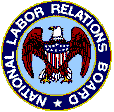Information contained in this publication is intended for informational purposes only and does not constitute legal advice or opinion, nor is it a substitute for the professional judgment of an attorney.
 The National Labor Relations Board has issued a new order temporarily delegating administrative authority over certain agency matters to the General Counsel (GC) and Board Chairman in the event the Board is left with fewer than three sitting members. In last year’s New Process Steel opinion, the Supreme Court held that the National Labor Relations Act requires that the Board operate with at least three members in order to exercise its full authority. When Member Craig Becker’s term expires at the end of the year, the Board will be left with Chairman Pearce (D) and Member Brian Hayes (R), assuming the Senate does not confirm additional members and the President is unable to make any recess appointments by that time. There also has been speculation that Member Hayes might resign to prevent the remaining members from finalizing contentious Board rules.
The National Labor Relations Board has issued a new order temporarily delegating administrative authority over certain agency matters to the General Counsel (GC) and Board Chairman in the event the Board is left with fewer than three sitting members. In last year’s New Process Steel opinion, the Supreme Court held that the National Labor Relations Act requires that the Board operate with at least three members in order to exercise its full authority. When Member Craig Becker’s term expires at the end of the year, the Board will be left with Chairman Pearce (D) and Member Brian Hayes (R), assuming the Senate does not confirm additional members and the President is unable to make any recess appointments by that time. There also has been speculation that Member Hayes might resign to prevent the remaining members from finalizing contentious Board rules.
In the event the Board is left operating with less than a three-member quorum, the Order grants the GC authority over appointments and other personnel decisions with respect to Regional and Subregional Directors and officers and over the establishment of Regional and Subregional offices. In addition, the Order grants the Chairman and the GC the joint authority to make decisions concerning the apportionment and allocation of funds and the establishment of personnel ceilings within the Agency and delegates to the Chief Administrative Law Judge authority over appointments and other personnel decisions concerning any Administrative Law Judge. The Order makes each delegation of authority subject to the right of any sitting Board Member to request full-Board consideration of any particular decision.
A separate order issued earlier this month temporarily grants the GC full authority over litigation matters that would otherwise require Board authorization and the ability to certify the results of any secret ballot election conducted under the National Emergency provisions of the Labor Management Relations Act (LMRA).
The latest order comes on the eve of the Board’s November 30 open meeting to discuss and vote on the controversial changes to union representation election procedures. Member Hayes has been vocal in his objection to both the significant proposed changes to the election rules and his colleagues’ efforts to finalize these amendments before Member Becker’s term expires at the end of the year. In a letter (pdf) to Chairman of the House Committee on Education and Workforce Rep. John Kline (R-MN), Hayes claimed, among other things, that the expedited rule approval process has deprived him “of any meaningful opportunity to consider the majority position,” and contravenes “long-standing Board tradition and the Board’s own internal operating rules.” According to Hayes, Becker and Pearce “have made it unequivocally clear that they intend to publish a final rule before the expiration of Member Becker’s appointment without regard to Board tradition or rule.”
Pearce quickly shot back at Hayes’ letter, claiming (pdf) that Hayes has failed to adequately participate in the rule deliberations, and decrying Hayes’s alleged threat to resign in protest.
For months, there have been rumors about interest groups urging Hayes to resign in order to prevent the Board from pursuing its regulatory agenda and issuing decisions that have overturned past precedent. In response to these rumors, on November 23, 2011, Rep. George Miller (D-CA), ranking member of the House Committee on Education and the Workforce, sent a letter (pdf) to Hayes with an attached document request for all information “regarding any requests, recommendations, or demands that [Hayes] or [his] office [has] received calling upon [Hayes] to resign from, obstruct, or otherwise incapacitate the National Labor Relations Board . . . as well as any offers or discussions regarding future employment.” In this letter, Miller acknowledges that if Hayes resigns “before the President can appoint, or the Senate can confirm, a Member to the Board to replace” Hayes, he would “effectively shut down the Board’s ultimate decision-making authority.”
This blog will continue to monitor these rapidly-evolving Board developments.


